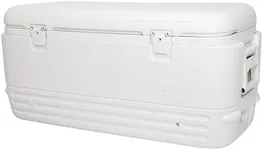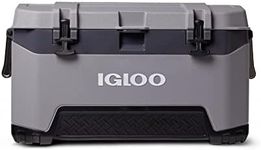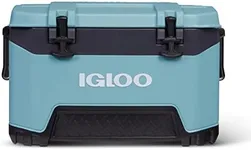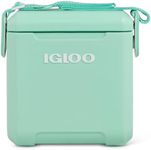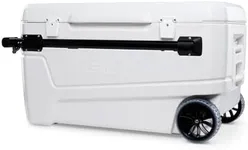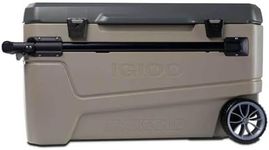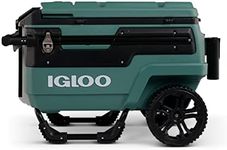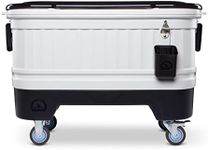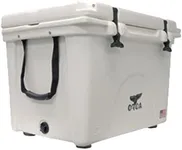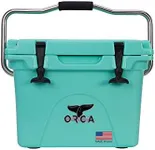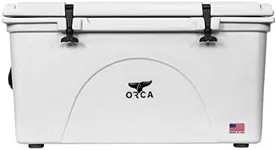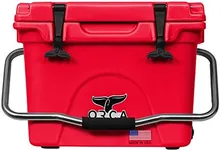Buying Guide for the Best Igloo Coolers
Choosing the right igloo cooler can make a big difference in your outdoor adventures, whether you're camping, tailgating, or just spending a day at the beach. The right cooler will keep your food and drinks cold for the duration you need, be easy to transport, and durable enough to withstand the elements. Here are some key specifications to consider when selecting an igloo cooler and how to navigate them to find the best fit for your needs.CapacityCapacity refers to the amount of space inside the cooler, usually measured in quarts or liters. This is important because it determines how much food and drink you can store. Small coolers (up to 20 quarts) are great for day trips or personal use, medium coolers (20-50 quarts) are suitable for small groups or weekend trips, and large coolers (50+ quarts) are ideal for extended trips or larger groups. Consider how much you need to store and how long you'll be away to choose the right capacity.
InsulationInsulation is what keeps the contents of your cooler cold. The quality and thickness of the insulation will affect how long your cooler can maintain its temperature. Basic coolers may keep ice for a day or two, while high-performance models can keep ice for up to a week. If you need to keep items cold for longer periods, look for coolers with thicker walls and lids, and consider models with additional features like airtight seals.
DurabilityDurability refers to how well the cooler can withstand rough handling and harsh conditions. This is important if you plan to use the cooler in rugged environments or for heavy-duty purposes. Look for coolers made from high-quality materials like rotomolded plastic, which is known for its strength and durability. Check for features like reinforced corners, sturdy latches, and strong handles to ensure the cooler can handle the wear and tear of your adventures.
PortabilityPortability is about how easy it is to transport the cooler. This includes the weight of the cooler when empty, the design of the handles, and whether it has wheels. Lightweight coolers are easier to carry but may have less insulation. Handles should be comfortable and sturdy, and wheels can be a big help for larger coolers, especially if you need to move them over long distances or rough terrain. Consider how far you'll need to carry the cooler and choose one that balances portability with your other needs.
Additional FeaturesAdditional features can enhance the functionality and convenience of your cooler. These might include built-in cup holders, fish rulers, bottle openers, or dry storage compartments. Some coolers also have UV protection to prevent sun damage, or antimicrobial liners to resist odors and stains. Think about what extra features might be useful for your specific activities and choose a cooler that offers those benefits.
